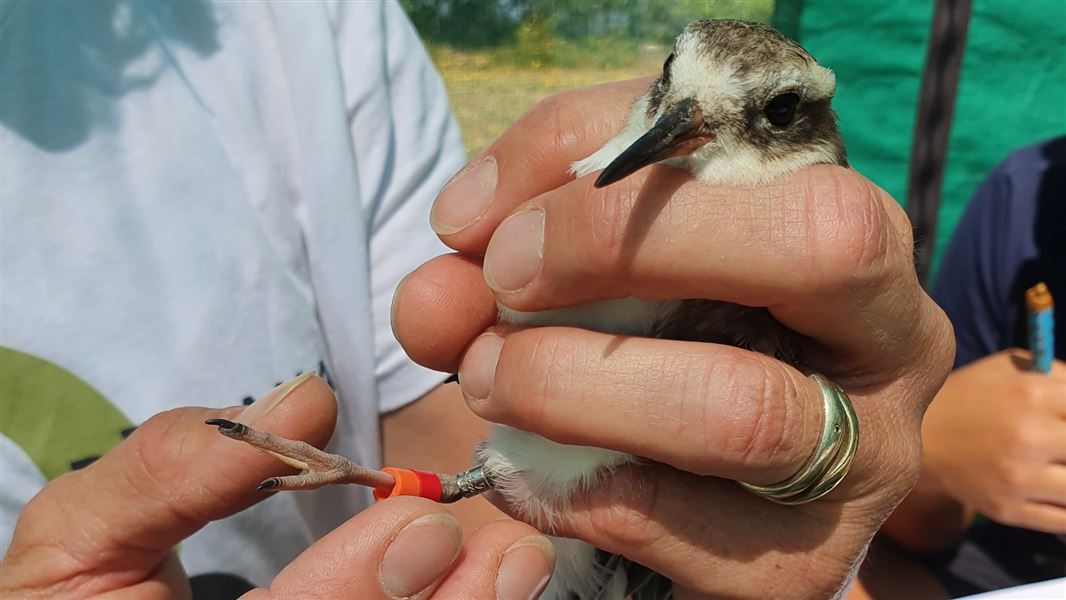Archived content: This media release was accurate on the date of publication.
Date: 07 February 2020
The young tūturuatu/shore plover recently fledged in captivity and were welcomed onto Mana Island by Ngati Toa Rangatira. They will remain in a temporary aviary for 10 days to acclimatise to their new surroundings before being released into the wild.
With a population of just 250 individuals, all on pest-free islands or in captive breeding facilities, this translocation is a critical step for the species.
“The aim is to establish a new population that will add to the size and security of the shore plover population, as well as being a step towards the Shore Plover Recovery Group’s goal of having five self-sustaining island populations,” says Dave Houston, Shore Plover Recovery Group Leader.
“Mana will become the fourth secure population along with Rangatira, Waikawa and Motutapu Islands. The largest population is on Rangatira in the Chathams, but this island has reached capacity and Waikawa is also nearing its capacity. New populations are essential for the species to continue to grow.
“Shore plover are highly susceptible to predation, so a predator free island is currently our only option for wild populations.”
The tūturuatu/shore plover made their journey from the Isaac Conservation and Wildlife Trust, Christchurch.
The birds will be managed by members of the Recovery Group while in the aviary. Once released they will be monitored by the DOC Island Rangers, Ngati Toa Kaitiaki Ranger and volunteers from Friends of Mana Island.
At least one further translocation of shore plovers from captivity is planned over the next 12 months, including some juvenile birds from Pukaha National Wildlife Centre in the Wairarapa.
This is not the first-time shore plover have been on Mana Island. Birds were introduced in 2007 but a rat incursion quickly decimated the population.
“We are very aware of the devastation caused by a single rat to Mana in 2011. Prior to this the shore plovers had bred successfully and were on the way to establishing a new population on the island,” says Mana Island Ranger Nick Fisentzidis.
“We’ve put a lot of effort into keeping Mana predator free since then. Pest monitoring is conducted regularly using a variety of monitoring methods, from traps on the ground to conservation dogs. Having access to conservation dogs based in our mainland office certainly helps to boost the already extensive pest monitoring conducted on the island.
“We’re very happy to be part of this important work, providing a safe haven for these rare and special taonga.”
Contact
For media enquiries contact:
Email: media@doc.govt.nz
